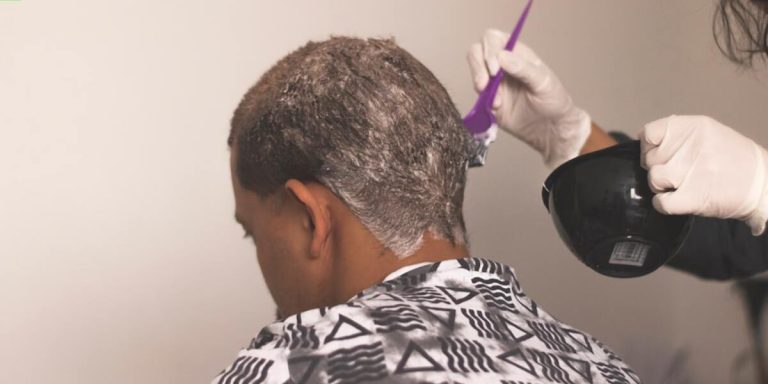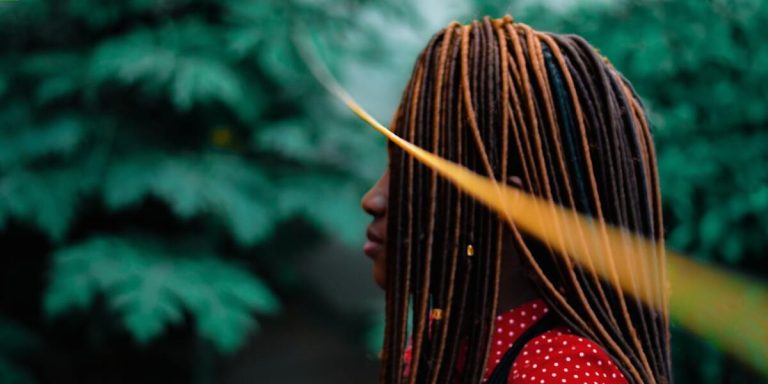Treatment for Itchy Scalp and Hair Loss: Insight into Effective Solutions
Experiencing an itchy scalp is bothersome, but when hair loss accompanies it, the situation can be distressing. A myriad of causes underlie these issues; however, finding a ‘treatment for itchy scalp and hair loss’ doesn’t have to feel like searching for a needle in a haystack. With accurate diagnosis and intervention strategies tailored according to specific needs,it’s possible to alleviate discomfort while promoting healthy hair growth.
This article delves into the realm of effective solutions catering specifically towards treating both conditions concurrently – itchiness on your crown coupled with thinning or shedding strands. An understanding of not just why this happens but also how different treatments work could be crucially instrumental in managing symptoms effectively. Stay tuned as we unfold various facets related to this often overlooked yet profoundly impactful aspect concerning overall well-being.
Did you know?
Did you know that a fungal infection often causes scalp itchiness leading to hair loss? The solution could be as simple as using an antifungal shampoo.
Understanding Itchy Scalp and Hair Loss: Causes and Symptoms
The correlation between an itchy scalp and hair loss is more significant than most people realize. In the year 2023, dermatological research has made great strides in uncovering this connection, establishing that persistent itchiness can sometimes be a precursor to falling strands of hair. This link highlights the importance of promptly addressing any unusual discomfort or changes regarding one’s scalp.
So what exactly triggers these symptoms? The common causes range from daily habits such as poor hygiene or intensive use of harsh chemicals found in several styling products to serious conditions like seborrheic dermatitis—an inflammatory disease usually marked by red, scaly patches on the skin—or psoriasis—a chronic autoimmune condition that accelerates skin cell growth leading to thickened plaques.
Hair shedding brought about by continuous itching could also come down to infections caused by funguses or yeast such as tinea capitis and malassezia respectively. Furthermore, medical treatments like chemotherapy induce Anagen Effluvium – sudden massive hair fall during its active growing phase – which often involves itchiness before noticeable thinning occurs.
Above all else though one should remember not every episode with an irritated scalp forecasts imminent baldness; nevertheless understanding how they might relate keeps you ahead in maintaining your mane’s wellbeing.
Identifying Common Triggers for Scalp Irritation and Follicle Damage
Scalp irritation and follicle damage are often linked to hair loss. Delving deep into the possible triggers could help you find an effective treatment for your itchy scalp and hair loss.
Firstly, a common cause is seborrheic dermatitis, an inflammatory condition that leads to redness, itching, and flaky skin on the scalp. This can also affect other areas rich in oil glands such as eyebrows or behind ears.
Secondly, there’s psoriasis – another chronic auto-immune disease where the immune system attacks healthy cells causing inflammation. It typically results in thick silver scales with underlying red patches which might itch or feel sore.
A third trigger may be alopecia areata, a disorder resulting from irregularities within one’s own immune system leading to patchy bald spots all over their head or body.
Fungal infections like ringworm can invade your scalp too causing scaly patches & bald spots which usually itches intensely. Harsh chemicals used in certain hair products have been known to irritate your sensitive scalps eventually promoting excessive shedding if left untreated.
Recognizing Early Signs of Hair Thinning Linked to Scalp Health
The early signs of hair thinning can sometimes be subtle, easily overlooked until it’s considerably apparent. However, one crucial link to note is the association between your scalp health and hair loss. Here are some key indicators that could suggest a connection.
Unusual Hair Fall: We all lose 100-150 strands daily; that’s normal! If you notice an increase in this number or see clumps of hair falling out frequently, this might indicate an issue with your scalp leading to abnormal thinning.
Persistent Itchiness: An incessantly irritated and itchy scalp often points towards underlying problems like dermatitis or psoriasis—conditions known for accelerating premature balding if left untreated.
Flaky Scalp or Dandruff: While dandruff itself doesn’t cause hair loss directly, its presence often speaks volumes about overall lackluster scalps prone to ailments facilitating abrupt fall-out patterns.
Understanding these symptoms guides us toward viable treatment options for effectively tackling both itchy scalp and concurrent alopecia.
Early detection is essential while dealing with anything related to our delicate follicular units because more than half battle against unwanted baldness involves timely intervention before irreversible damage strikes!
Comprehensive Guide to Treating Itchy Scalp Associated with Hair Loss
Delving into the tangle of itchy scalp and hair loss, one fact becomes strikingly clear: these two conditions often come as an unwelcome pair. However, in our modern age marked by 2023’s leading-edge advancements in trichology—the specialized field concerning hair and scalp health—there are effective treatments available that can simultaneously soothe your irritated skin while also curbing excess strands from going down the drain.
First things first, identifying the root cause of itchiness is crucial. Common causes range from dandruff or seborrheic dermatitis to more serious issues like psoriasis or fungal infections. Over-the-counter medicated shampoos containing ingredients such as zinc pyrithione, selenium sulfide or ketoconazole could be a good starting point for many sufferers seeking relief from itching and flakiness caused by mild to moderate dandruff-like symptoms.
But what about those dreaded thinning locks? Thankfully there has been substantial progress on this front too over recent years–even when dealing with complex cases where both discomforting itchiness along with unsettling hair fall coexist together under siege! Minoxidil (commonly referred to as Rogaine) is approved by FDA specifically for treating hair loss irrespective of its roots which may lie intertwined within irritating inflammation afflicting one’s sensitive scalpscape.
In conclusion though we must stress upon adopting holistic approach towards managing any worrisome signs seen manifest around scalp region extending till hairs’ ends!
Exploring Medicated Shampoos for Dual-Action Relief
Medicated shampoos are often front-line warriors in the battle against itchy scalp and hair loss. They work by addressing issues like dandruff, seborrheic dermatitis, or psoriasis that could be causing your itchiness and leading to hair thinning.
One recommended product is Ketoconazole shampoo. An antifungal solution, this operates directly at the root of many common skin conditions related to an overgrowth of yeast on the scalp. By applying it several times a week as directed, you can effectively reduce itching and decrease hair fall.
Another option would be Salicylic Acid Shampoos which act especially well for flaky scalps due towards their excellent exfoliating properties. This powerful ingredient helps shed off dead cells attached to your forefront thereby cleansing clogged pores that inhibit flourishing growth cycles from occurring unhindered.
Zinc Pyrithione shampoos also play a crucial role when dealing with aggravated scale surfaces; they’re meant specifically targeting seborrhoea – another leading cause behind both symptoms we’re examining today (i.e., intense irritation coupled alongside noticeable shedding).
Don’t forget about Coal Tar-based products either! These were long employed even before modern medicine came into existence because these slow rapid cell turnover thus easing inflammation generally associated with counterproductive fallout episodes plus uncomfortable ‘scratchy’ sensations alike too!
Delving Into Natural Remedies: Oils, Serums, and Diet Adjustments
Among these are oil treatments which have been proven over time as effective measures against hair loss associated with an itchy scalp. Oils like coconut, jojoba, and peppermint can be massaged into your scalp regularly to nourish follicles and soothe inflammation.
Firstly, Coconut oil stands tall amongst others in this field due primarily to its hydration properties which prevent dryness on your scalp – a key culprit behind itchiness.
Jojoba Oil’s moisturizing elements reduce dandruff production while simultaneously paving way for undisturbed hair growth. Thirdly but by no means lastly you have Peppermint Oil; celebrated not merely because of its pleasant aroma but moreover because when applied correctly, increases circulation around the application area thus stimulating healthy hair growth.
Next up we consider Serums derived from nature’s own storehouse- botanical extracts such as ginseng or saw palmetto could help slow down or even reverse hereditary balding patterns.
On another note there lies Diet adjustments standing steadfast among these potential solutions too! One cannot underestimate their importance regarding maintaining overall health including those locks atop our head!
Advancements in Dermatological Treatments for Scalp Conditions
The realm of dermatology has witnessed significant advancements, especially in the treatment for itchy scalp and hair loss. These contemporary interventions have proven to be a beacon of hope for those grappling with this predicament. They provide not just symptomatic relief but also delve into addressing the root causes leading to improved overall scalp health.
One notable advancement is targeted therapy that focuses on correcting imbalances in one’s system that might trigger such conditions. It constitutes personalised treatments based on an individual’s unique genetic makeup or hormonal profile, thereby ensuring high efficacy rates. For instance, individuals suffering from seborrheic dermatitis (a condition causing an itchy scalp) may benefit immensely from topical corticosteroids tailored specifically as per their needs.
Also noteworthy are state-of-the-art low-level laser therapies which stimulate cell growth and repair damaged follicles leading to reduced hair fall out rate by fortifying weak tresses at a cellular level. This non-invasive approach ensures no scarring while promoting natural growth mechanisms.
Furthermore, innovations like micro-needling and platelet-rich plasma (PRP) injections manifest themselves as promising solutions too. Micro-needling stimulates collagen production improving scalp health whereas PRP injects concentrated platelets rich in growth factors taken from your own blood back into your inflamed areas speeding up healing process.
Breakthroughs in Topical Medications Tailored for Scalp Issues
Chronic itchiness and hair loss have been a common concern for millions worldwide, but in recent years, advancements in the dermatological sciences have led to breakthroughs that could change everything. One such development is the rise of topical medications tailored specifically for scalp issues.
Minoxidil has long been hailed by many experts as one of the most effective over-the-counter solutions available today – aimed at not just countering but reversing male pattern baldness symptoms like thinning hair and receding hairline. This once-a-day application promises visible results within months when used consistently.
Ketoconazole on the other hand deals primarily with controlling dandruff which indirectly reduces itching, thus proving itself invaluable against scalp conditions leading to temporary or permanent alopecia (hair loss). It typically comes as part of specialized shampoos targeting those facing frequent bouts of flaky skin disturbances on their scalps.
The Role of Light Therapy in Combatting Hair Loss from Itchy Scenarios
The world of dermatology has recently been revolutionized by the advent of light therapy, a novel approach that is proving to be remarkably effective in treating itchy scalp and associated hair loss. Derived from advanced phototherapy technology, this treatment option works wonders for individuals struggling with common yet discomforting issues such as an itchy scalp leading to hair fall.
Light therapy entails exposure to specific wavelengths of light using lasers, LEDs or other contemporary sources. It primarily addresses inflammatory conditions causing itchiness on the scalp which often leads to significant hair loss if untreated. Encompassed under chronic skin disorders like psoriasis or seborrheic dermatitis among others, these conditions had limited solutions until recent advancements.
Certain light frequencies, used therapeutically, promote cell regeneration and reduce inflammation – both key in encouraging healthy follicle growth and retention. Infrared lights specifically rejuvenate deep scalp cells, leading to fuller, thicker hair and reducing inflammation at the source. This helps alleviate persistent itching.
Light Therapy sessions are usually quick, non-invasive procedures done within clinical settings requiring multiple sittings spread across consecutive days/weeks depending upon individual requirements.
Moreover, home-based portable devices offering similar functionality also exist enhancing accessibility for patients unable/uncomfortable visiting clinics regularly making sustained treatment possible hence fostering better results long-term considering consistency’s importance here.
Conclusion
In sum, the journey to finding an effective treatment for itchy scalp and hair loss doesn’t have to be a lonely or confusing one. With patience, consistency and utilizing scientifically-backed remedies we’ve discussed here – you can regain not just your beautiful locks but also the confidence that comes with them.
Why stop at this post? Our website is brimming over with valuable tips and insights into battling various forms of hair troubles including diverse treatments for hair loss. Take some time to browse around – remember knowledge is power; arm yourself!







